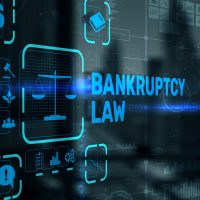Denial of Discharge in Chapter 7 Bankruptcy Cases

The best-case scenario in a chapter 7 bankruptcy case is that the bankruptcy court discharges all of your eligible debts and does not liquidate any of your assets. When this happens, you get to keep your house and your car, and the court discharges your credit card debts and your old medical bills. Therefore, you can use your future income to pay your debts that are not eligible for discharge under bankruptcy laws, such as tax debts and overdue child support obligations. The only negative consequence is that you will have to start over at rebuilding your credit gradually. Of course, filing for bankruptcy is not as simple as “ask and you shall receive.” The court has the right to decide which of your eligible debts to discharge, and it can seek input from your creditors in making this decision. It can even decide not to discharge any of your debts at all, leaving you responsible for repaying just as much money as if you had never filed for bankruptcy. To ensure the best chances of success with your chapter 7 bankruptcy case, contact a Plantation chapter 7 bankruptcy lawyer.
Why Do Bankruptcy Courts Refuse to Discharge Debts?
A bankruptcy filing requires several months of careful preparation to ensure that the court discharges the debts that you are seeking to discharge. The best way to ensure that your bankruptcy case documents are thorough and accurate is to have a lawyer represent you in bankruptcy court.
These are some common reasons that the courts refuse to discharge debts in chapter 7 bankruptcy cases:
- The borrower did not complete a court-ordered debt management course early in the bankruptcy filing process.
- The financial documents contain omissions or inaccuracies. This is especially a problem when a borrower cannot account for financial losses, making it look like the borrower intentionally dissipated assets in order to qualify for discharge of debts.
- The borrower is ineligible for bankruptcy under chapter 7. The chapter 7 bankruptcy category is only for individuals, not for corporations.
- An insufficient amount of time has passed since the borrower’s last chapter 7 bankruptcy filing. If you have previously filed for chapter 7 bankruptcy, you must wait at least eight years before filing again.
- The borrower does not comply with one or more of the orders that the court issues during the bankruptcy case.
How Big a Problem Is Denial of Discharge?
If you file for chapter 7 bankruptcy and the court refuses to discharge your debts, then you can be in an even worse financial position than if you had not filed at all. If you don’t file for bankruptcy, the worst that can happen is that you still owe the debts, and creditors can sue you and garnish your paychecks. If you file and get a denial of discharge, you will still be responsible for your debts, but the court can also liquidate some of your assets.
Work With a Debt Lawyer About Chapter 7 Bankruptcy
A South Florida debt lawyer can help you successfully file for chapter 7 bankruptcy protection. Contact Nowack & Olson, PLLC in Plantation, Florida to discuss your case.
